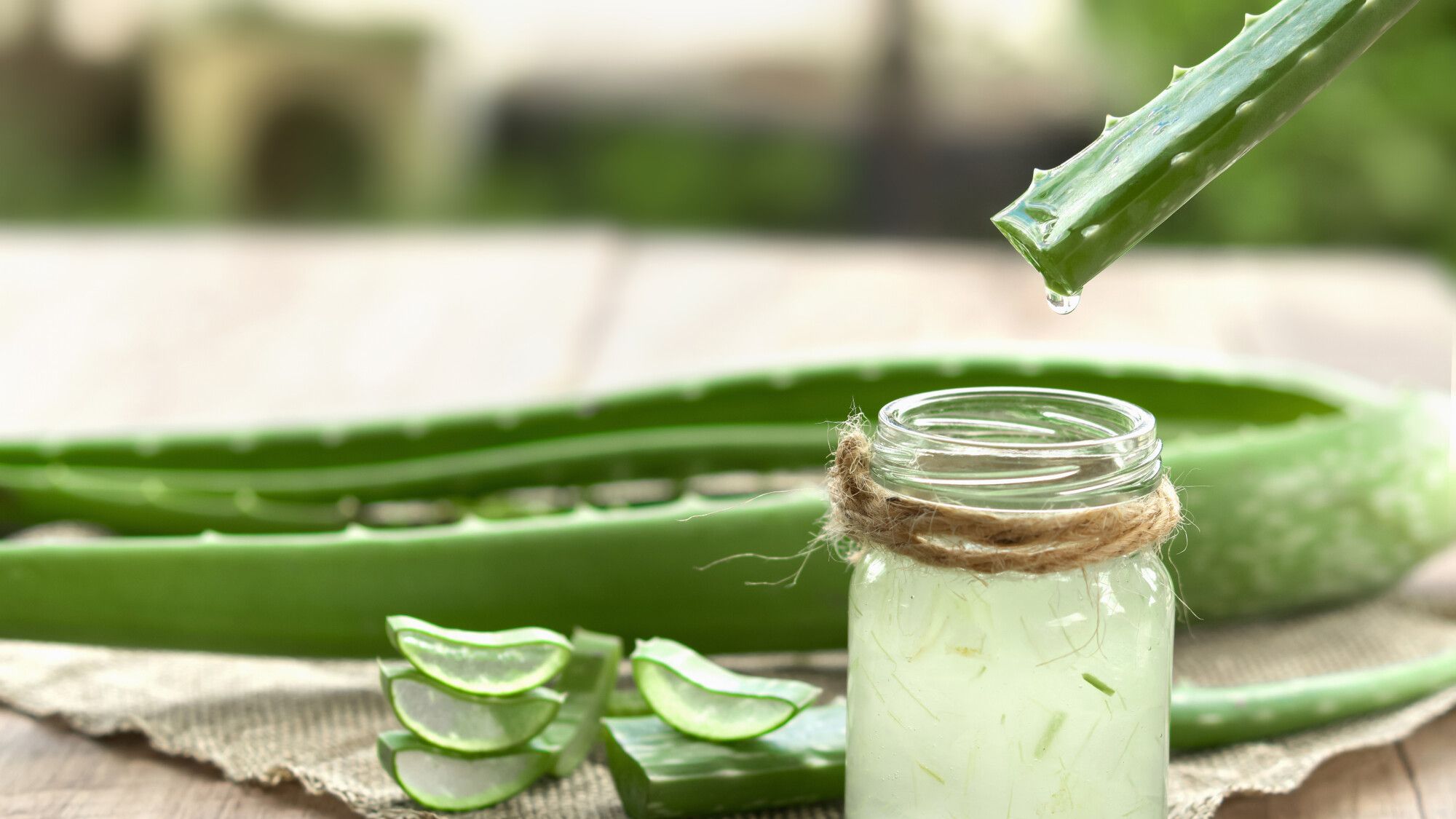Perfect for hydrating the skin, improving its passage or stimulating its immune defenses, useful for relieving gastric reflux or sunburn… Laloe vera, a succulent plant, which has been used in medicine since ancient times, has conquered the world. You can use it in your cosmetics, in night creams, in juices, in food supplements… If many believe that this natural product is a wealth of beauty and health,The World Health Organization has issued a warning on this potentially carcinogenic product. So is it a good idea to use this product? Our time enlightens you.
What is aloe vera?
l’aloe vera is a succulent plant, composed mainly of water, found mainly around the Mediterranean and in North Africa. It consists of a green and prickly outer part, a yellow latex with laxative properties and a white gel inside.
Now it can be found on sale in the form of dietary supplements in capsules, honey, gel, juice, etc. But also as a raw product, to prepare it yourself: you can actually buy fresh leaves in certain stores (Carrefour, Naturalia, Biocoop. ..) . This product, rich in proteins and vitamins, is presented as a tool in the fight against cell aging and stimulation of immunity.
Under what conditions can aloe vera be dangerous?
You must be very careful when the juice, drunk or swallowed, is prepared at home. Actually,The World Health Organization has classified aloe vera as a possible carcinogen. if consumed as whole leaf extract. Reason? “The outer part of the Aloe vera leaf secretes a yellow liquid (called latex) rich in hydroxyanthracene derivatives, molecules that have a very strong laxative effect and are the cause of multiple adverse effects,” explain the French health authorities. In particular, the risk of DNA damage and carcinogenicity.
This is why it isDirectorate General for Competition, Consumerism and Fraud Prevention (DGCCRF) and the General Directorate of Health (DGS) recommend removing the outer part and all the latex in order to use only the gel in the middle of the sheet. As a precaution, health authorities also advise avoiding the consumption of fresh aloe vera leaves, including the gel itself, by children, pregnant and nursing women, and fragile people. “It is true that latex contains anthraquinone, which is a laxative,” he confirms Alexandra Retion, dietitian and nutritionist in Paris. Like any laxative, it overloads your digestive system, which can cause inflammation, risk of dehydration, malnutrition and studies have found a link with cancer.“
On the other hand, if you get the juice or gel commercially, careful elimination of any dangerous product has already been done.
For what purposes can it be useful to drink aloe vera?
- To help the intestinal flora
“Aloe vera has interesting anti-inflammatory properties for the digestive system: it can caress the microbiota and regulate intestinal transit,” insists Alexandra Retion.
- In case of digestive problems
Due to its laxative properties, “if, for example, we tend to slow down digestion or have constipation, drinking aloe vera juice can be a good idea,” advises the dietitian. Since it has a role in inflammation, this juice can also be useful for calming gastroesophageal reflux.” “It contains useful enzymes for people who have digestive problems, especially those who do not easily digest bread, for example,” he adds. Paul Dupont, former head of a dermatology clinic, specialist in nutrition and the author Treat your skin naturally.
For type 2 diabetes, some studies show that aloe vera helps regulate fasting blood sugar levels. But they are currently too detailed and do not specify in detail in what form, for what duration, with what long-term effects this intake of aloe vera could be effective in this disease.
- To strengthen immunity
Aloe vera contains vitamins A, C, E, B1, B2, B6, B9, B12, as well as calcium, chromium, phosphorus, copper, iron, selenium, magnesium, manganese, potassium, sodium and zinc. This is why it is increasingly available in pharmacies in the form of food supplements. “Between zinc, which strengthens the immune system, and all these vitamins, aloe vera juice is an interesting cocktail to take during this winter season,” assures the dietician. Koja warns: “before turning to nutritional supplements, I always advise my patients to see if there are any problems in their eating habits. We often realize that it is enough to change the hygiene of our lives… and there is no magic food!”
What is the benefit of aloe vera for the skin?
He it can be applied to relieve sunburn… Or even as a day cream. Is it enough? “Le gel d’aloe vera sera régénérant, mais pas assez riche pour nourrir votre peau car vous n’y trouvez pas d’acides gras nécessaires pour lutter contre l’apparition des rides par exemple”, explains Paul Dupont.
“Aloe vera is useful for helping the skin heal and relieves eczema patients,” continues the dermatologist. The only contraindication: allergies.” Indeed, some people may react badly to this product if they are allergic to latex and the lily family. In this case, you risk skin rashes and red eyes.
You can also use this natural product as a hair treatment. In fact, it hydrates the hair, protects the scalp from external influences, and restores softness and shine to dull hair.
Read also > Skin, hair… Beauty also comes through plants
How carefully should aloe vera gel be used?
As with aloe vera juice, always check the composition of your gel before applying it to your skin! “Il faut vraiment faire attention que ça soit vraiment à l’aloe vera et pas un gel reconstitué, met en garde Paul Dupont. Certain manufacturers metten de l’eau, un gélifiant, de la gomme de guar, un épaississant, de la gomme xanthan… However, this dries out the skin instead of moisturizing it!” D’où un conseil de base: considerez bien les ingredients, si vous avez 90% d’aloe, vous pouvez continuer à étaler le gel sur votre peau, vos boutons.. Mais si le premier ingrédient, c’est “aqua” and no or very little aloe vera, you can ignore the product.

